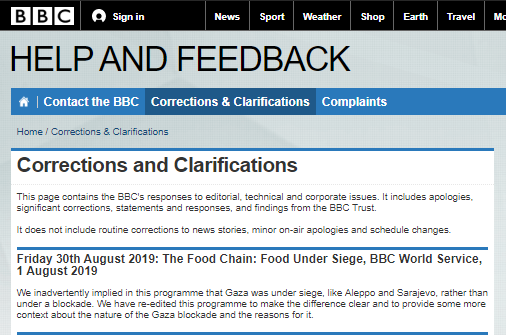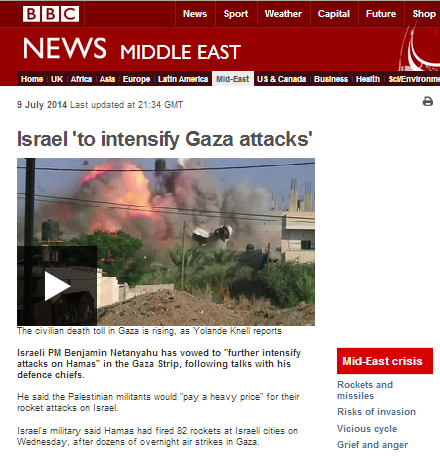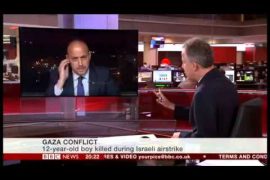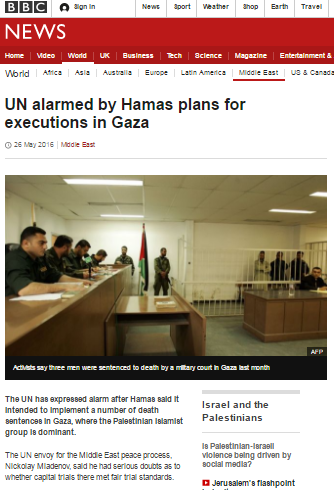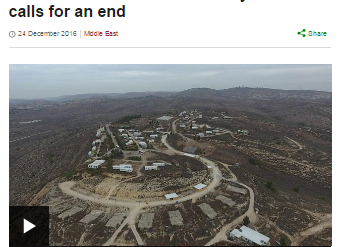At the beginning of August BBC World Service radio aired an edition of the programme ‘The Food Chain’ which was titled ‘Food under siege’.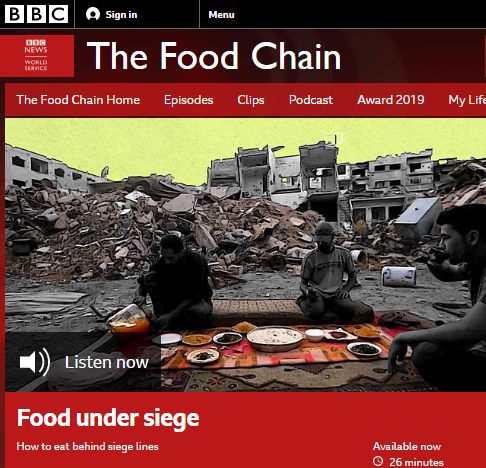
“Emily Thomas meets people who have lived under siege in Aleppo, Syria, the Gaza strip, and Sarajevo, Bosnia-Herzegovina. They reveal the uncomfortable reality of eating behind siege lines.”
BBC WS food programme: inaccurate, lacks context and promotes Hamas propaganda
BBC Watch submitted a complaint concerning that programme’s repeated inaccurate portrayal of the Gaza Strip as being “under siege”, noting that in the week that this programme was aired twice, 1,768 truckloads of goods entered the Gaza Strip from Israel, including 6,785 tons of food. We pointed out that the “intermittent power supply” portrayed in the programme has nothing to do with Israel and that as well as breaching BBC editorial guidelines on accuracy by leading listeners to wrongly believe that the Gaza strip is “under siege”, it also compromises the BBC’s impartiality seeing as that false claim is one of Hamas’ main talking points.
On August 31st we received a reply from the programme’s editor.
“Thank you for your email and your comments about the episode of The Food Chain titled ‘Food under siege’.
I’m sorry you were unhappy with the programme and I should say from the outset that I agree with some of the points you are making.
The use of the word ‘siege’ in the programme was intended to be a colloquial reference to the difficulties of food provision in different parts of the world, with the programme focusing on the creative solutions that people have adopted in such circumstances.
As a food programme our aim was simply to examine how people cook under duress and we didn’t intend to imply there were exact political or military similarities between three different parts of the world.
But on reflection we can see that in the absence of providing more context about Gaza, the title of the programme and the reference to the historical notion of a siege might have led listeners to infer that we thought this was a precise description of the position in Gaza, which was not our intention.
So we agree that this episode would have benefited from more information about the blockade and I am sorry we did not provide this.
This is, as I say, a food programme rather than a detailed examination of the background to any of these conflicts so I do not think we needed to go into any great detail but even within these confines I think we should have provided more context, for the reasons I have suggested.
As a result, we have included more information about the blockade and re-worded the programme script in places where we accept the position in Gaza should have been made clearer.
We have also placed a note on our correction and clarifications page.
Best wishes,
Robb Stevenson, Editor”
We have not yet been able to locate that note on the BBC’s correction and clarifications page but the amended synopsis to the programme now reads:
“Emily Thomas meets people who have lived under siege in Aleppo, Syria, and Sarajevo, Bosnia-Herzegovina. A journalist reveals how it feels to feast in a cafe in the middle of a city where most are struggling to eat, and an electrician explains why feeding cats in the middle of a war-zone felt like a message of compassion and resistance.
We also hear about the Palestinians living under the blockade of the Gaza strip. A cook explains how to run a catering company when electricity, water and some ingredients are scarce.
This programme was originally broadcast on August 1 but has since been re-edited to provide more context about the Gaza blockade and to distinguish this more clearly from conditions in Aleppo and Sarajevo.”
Several significant amendments have also been made to the programme itself.
Update: The following clarification has been published.
